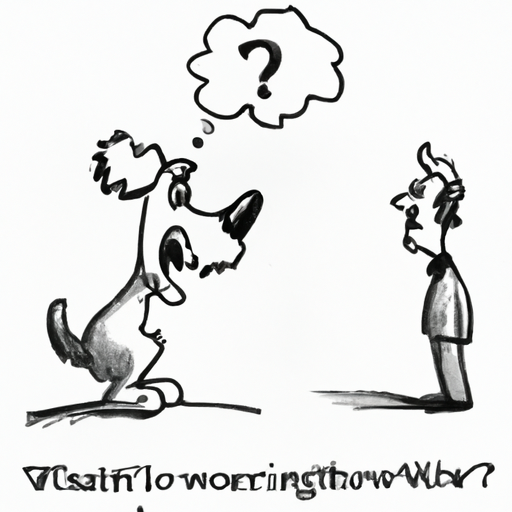“`markdown
Why Do Dogs Growl at People?
Understanding the Canine Language
Firstly, it’s important for you, as a caregiver, to understand that growling is a form of communication for dogs. Just like humans, dogs have a unique language of their own and growling is a significant part of it. It’s their way of expressing discomfort, fear, aggression, or even playfulness. It’s their method of saying something isn’t right, or they need space.
Root Causes of Growling
Dogs growl for a variety of reasons. Here are the most common ones:
- Fear: Dogs often growl when they are scared. This could be due to an unfamiliar person, a sudden loud noise, or a new environment.
- Territory Protection: Dogs are territorial creatures. If they perceive a threat to their space, they might growl to ward it off.
- Pain or Discomfort: If your dog is injured or unwell, they may growl as a reaction to the pain.
- Aggression: In some cases, growling can be a sign of aggression. This is usually accompanied by other signs such as bared teeth and a stiff body posture.
How to Respond to Growling
When your dog growls, it’s essential to respond correctly. Remember, they’re trying to communicate with you. Here are a few tips on how to handle the situation:
- Do not punish: Punishing your dog for growling will only suppress the symptom, not the cause. It might also make them feel threatened, potentially leading to more aggressive behavior.
- Try to understand the trigger: Try to identify what’s causing your dog to growl. Is it a specific person, another animal, or a particular situation?
- Consult a professional: If you’re unable to determine the cause or if the growling becomes frequent or violent, consider seeking help from a professional dog trainer or a behaviorist.
Preventing Growling Through Training
Training can significantly reduce instances of growling. Here are some strategies you could use:
| Strategy | Description |
|---|---|
| Socialization | Expose your dog to a variety of people, animals, and environments. |
| Positive Reinforcement | Reward your dog for positive behavior and ignore or redirect negative behavior. |
| Desensitization | Gradually expose your dog to their fear in a controlled environment. |
FAQs
Q: Is growling always a sign of aggression?
A: No, dogs also growl when they’re playing or excited.
Q: Should I punish my dog for growling?
A: No, punishing a dog for growling can lead to more aggressive behavior.
Q: What should I do if my dog is growling at strangers?
A: Try to calm your dog and remove them from the situation. If it continues, consider consulting a professional.
Q: Is growling normal for puppies?
A: Yes, puppies often growl during play. However, if it’s accompanied by aggressive behavior, it might be a concern.
“`



